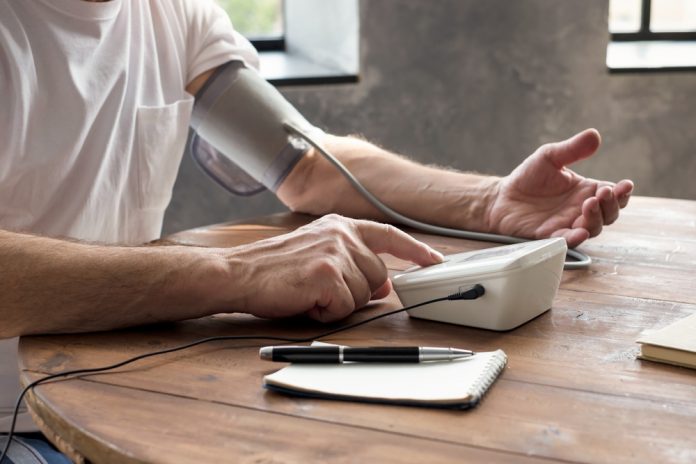Why does blood pressure fluctuate? What causes blood pressure to fluctuate from high to low? Although fluctuating blood pressure can be normal day-to-day, fluctuating beyond the normal range may be cause for worry.
Keep reading to find out six reasons for changes in blood pressure (and when to worry).
Why Does Blood Pressure Fluctuate?
Some blood pressure changes are normal. For example, before you wake up, your blood pressure begins to rise to support you in starting your activities for the day. For most people, blood pressure peaks in the middle of the day.
Then, in the late afternoon and evening, blood pressure begins to drop. This helps to prepare your body for a good night’s sleep.
Spotting Irregular Fluctuations
While some fluctuations are normal, other changes in blood pressure can be warning signs. Take note if blood pressure spikes:
- During the night
- Early in the morning
- Suddenly and significantly
- On a regular basis
Sudden and swift shifts in blood pressure are called labile hypertension. In other words, this condition occurs when your blood pressure experiences more fluctuations than is normal for your age.
Additionally, other factors can affect blood pressure:
- Age
- Alcohol, smoking, or recreational drugs
- Body position
- Caffeine
- Excessive exercise or inactivity
- Family history
- Poor diet and meals high in salt (sodium)
- Poor medication adherence
- Sleep disorders
- Stress
A doctor can help you track changes from visit to visit, and can help you cope better with expected changes in blood pressure (i.e. from sleeping to waking, during regular exercise).
What Causes Blood Pressure To Fluctuate From High To Low?
There are many different potential causes of fluctuating blood pressure, but here are six of the most common ones.
Heart Disease or Diabetes
Underlying blood vessel issues can cause fluctuations in blood pressure. Cardiovascular disease, kidney disease, and diabetes can all cause high blood pressure or changes in blood pressure. If you have diabetes, you may be twice as likely to have high blood pressure.
Cognitive Decline
Especially for the elderly, cerebrovascular disease can have detrimental effects. It’s important to recognize warning signs. Other less common conditions, like posterior reversible encephalopathy syndrome (PRES), can cause changes in blood pressure.
Additionally, strokes are associated with changes in blood pressure numbers. Studies on blood pressure fluctuations in the elderly are continuing to find links between cognitive function and the complexities of blood pressure.
Orthostatic Hypotension or Hypertension
Orthostatic hypotension (OH) and orthostatic hypertension (OHT) are forms of dysregulated blood pressure. While OH is typically linked to dementia, falls, and impaired Instrumental Activities of Daily Living (IADLs), OHT may also be the cause of problems. While OH and OHT are associated with different syndromes, both can affect the geriatric population.
Hormone Disorders
In some cases, endocrine disorders or hormone problems can cause changes in blood pressure. Specifically, issues with the adrenal gland can cause issues with the way the body reacts. Essentially, your body’s system for “flight or fight” can get thrown off and affect your blood pressure.
Injury, Illness, Infection, or Surgery
Blood pressure changes are common during situations like injury, illness, infection, or surgery. This is due to the physiological changes that occur. For example, a car accident cou
Changes In Medication
Changing medical regimens can also mess with blood pressure. Your daily patterns may change, so it is important to have your doctor walk you through what to look out for.
While your pressure stabilizes, you can take careful steps to mitigate risk. Having a system for home monitoring can help you understand better how your medication is affecting your blood pressure.
A Final Word On Fluctuating Blood Pressure
While changes in blood pressure don’t always cause immediate alarm, changes beyond the norm can introduce risk. It’s important to attend your regular doctor appointments and monitor your medication. Additionally, be sure to mention any other symptoms to your doctor to help them diagnose a root issue.
References:
Diabetes and High Blood Pressure. Johns Hopkins Medicine. https://www.hopkinsmedicine.org/health/conditions-and-diseases/diabetes/diabetes-and-high-blood-pressure.
Does Your Blood Pressure Fluctuate Widely? Here’s Why You Need to Pay Close Attention. Cleveland Clinic. Published December 2019. https://health.clevelandclinic.org/does-your-blood-pressure-fluctuate-widely-heres-why-you-need-to-pay-close-attention/.
Jiang X, Cai Y, Zhao Y, Gao X, Peng D, et al. The Complexity of Blood Pressure Fluctuation Mediated the Effects of Hypertension on Walking Speed in Older Adults. Front Aging Neurosci. 2021;13:640942.
Kocyigit SE, Erken N, Dokuzlar O, Gunay FSD, Bulut EA, et al. Postural blood pressure changes in the elderly: orthostatic hypotension and hypertension. Blood Press Monit. 2020;25(5):267-270.
Kozarek K, Sanders RD, Head D. Perioperative blood pressure in the elderly. Curr Opin Anaesthesiol. 2020;33(1):122-0.
Lopez-Jimenez F. Blood pressure: Does it have a daily pattern? Mayo Clinic. Published June 2022. https://www.mayoclinic.org/diseases-conditions/high-blood-pressure/expert-answers/blood-pressure/faq-20058115.
Roca F, Rougette K, Zmuda L, Noel G, Larose S, et al. Association between orthostatic blood pressure dysregulation blood pressure dysregulation and geriatric syndromes: a cross-sectional study. BMC Geriatr. 2022;22(1):157.
Weber CO. Is It Normal for Blood Pressure to Fluctuate? Verywell Health. Published December 2021. https://www.verywellhealth.com/normal-blood-pressure-fluctuations-throughout-the-day-1764097.






